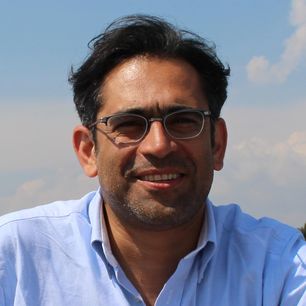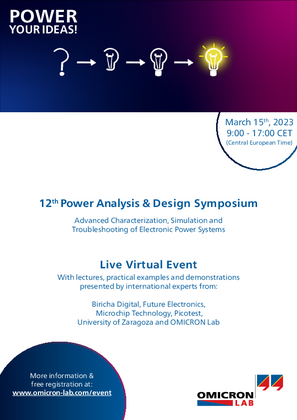12th Power Analysis & Design Symposium 2023 (VIRTUAL)

The 12th Power Analysis & Design Symposium took place as a live, virtual event on Wednesday, March 15th, 2023.
No matter if you had time to attend the symposium or not, for your convenience we made all presentations and recordings available - below you will find the presentation pdf and a link to watch the recording on YouTube for each topic.
Seminar Topics
Control Methods of LLC Converters
by Christophe Basso - Future Electronics
Targeting practicing engineers and graduating students, this seminar starts with a review of soft-switching definitions and explains how a typical LLC converter operates. The description of the direct-frequency control opens the discussion on control methods and more recent approaches are covered such as charge- and current-mode controls. Control-to-output transfer functions are plotted and the responses of each approach are compared. Simulation is used throughout the examples to illustrate typical operating waveforms but also extract the ac response from a switching circuit. Several examples of loop stabilization are covered in continuous- and discrete-time-domains.
Using mathematical analysis and SIMPLIS, the author maintains a permanent link between theory and market reality. Several working design examples are used to apply the techniques described in the presentation. Balancing analytical aspects and real case examples, the seminar targets an audience with an intermediate background in the presented subject.
Download the presentation
Watch the recording
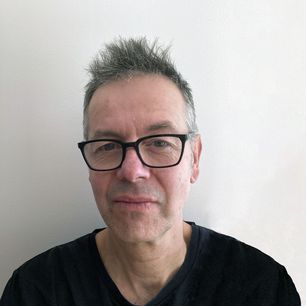
Shielding Low Frequency Magnetic Fields
by Arturo Mediano - University of Zaragoza
It is common to consider EMI problems appear at high frequencies. Higher frequencies are usually responsible for parasitic couplings, undesired effects of non-ideal components, and other unexpected results for electronic designers. But, there are a lot of situations where low frequencies can create serious problems for electronic systems. Any sector can be affected by this problem: medical, instrumentation, consumer, audio, home appliances, communications, etc.
When EMI problems are conducted, filters are a common solution. When EMI problems are non-conducted, we use shielding. And with the shield we prevent aggressive systems from interfering with sensitive circuits. Shielding uses two main mechanisms: absorption and reflection. And the effectiveness of a shield is dependent of frequency and nature of the field (electric or magnetic). As the frequency of EMI is reduced both reflection and absorption losses decrease for the magnetic field so low frequency magnetic fields are harder to shield than medium and high frequency EMI signals. Then, we will need to apply special shielding techniques as reorientation or using highly permeable materials offering low reluctance (i.e. mu-metal or steel).
In this presentation we will …
1) ... review (briefly) the theory of shielding,
2) … understand why electric/magnetic fields work in a different way for shielding,
3) … discover what is “low frequency” for shielding,
4) … review common techniques to solve this problem.
Of course we will use demonstrations for a more effective and funny session.
Download the presentation
Watch the recording

Digital Average Current Mode Control of Switch-Mode Power Supplies
by Andreas Reiter - Microchip Technology
Average Current Mode Control (ACMC) of switch-mode power supplies has substantial, practical advantages over common Voltage Mode Control (VMC) or Peak Current Mode Control (PCMC) implementations in terms of robustness, reliability, and flexibility. Especially in dynamic applications, such as battery chargers, bidirectional converters, multiphase converters, PFC stages and inverters, ACMC solves key design challenges from low-level stability issues to high-level feature integration. However, the complex nature of this loosely coupled, non-serial cascaded feedback loop type requires proper analysis and a good understanding of its dependencies to prevent inner oscillations and hidden instability.
This lecture guides through the design and configuration process of a digital ACMC implementation, showing how to tackle common challenges and how to avoid typical pitfalls.
Download the presentation
Watch the recording

Accurate Loop Gain Measurements, Tips & Tricks
by Florian Hämmerle - OMICRON Lab
Loop Gain measurements are a powerful tool when designing a compensator of a switching power supply or to verify the small-signal stability of voltage regulators or switchers having a feedback circuit for a stabilized output voltage.
Since the availability of price effective vector network analyzers like the Bode 100, loop gain measurements have gained in popularity enabling the systematic stabilization and control design for simple as well as complex topologies in power electronic circuits.
In this presentation, the basics of the loop gain measurement method using voltage injection are reviewed and common pitfalls, like noise at low frequency, are explained in detail. Choosing the right measurement signal size is not only crucial to fight noise but also to get accurate results. The presentation includes tips and tricks for better measurements and demonstrates some of the most common challenges in a real-life demonstration.
Download the presentation
Watch the recording
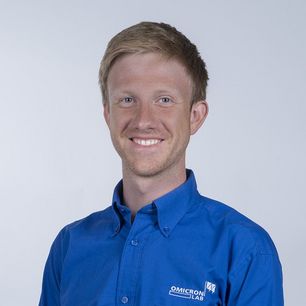
How to use Off-the-Shelf Transformers in Switching Power Supplies
by Dr. Ali Shirsavar - Biricha Digital
Configurable, off-the-shelf transformers have been available for many years. However, their use is not common and general consensus is that you need a custom transformer even for the simplest of designs. A quick search on the internet shows that when it comes to off-the-shelf transformers, design information is very scarce, few guidelines are available and Application Notes do not show how to change and scale the specifications.
Wouldn't it be great to be able to order your transformers from your favorite part supplier along with all your other components? In this session, we will teach how to make all the necessary calculations to show how we can use off-the-shelf transformers in power supply designs.
We will provide all of the necessary equations for scalable hand calculations first, but also provide a comprehensive spreadsheet with a multitude of possible combinations of turns ratios and parameters to enable extremely fast design of low power PSUs. The session concludes with a step-by-step design example of a Flyback converter.
As a thank-you for joining the Symposium, Biricha is offering a fully-featured complementary 6-month license for the Biricha WDS - Power Supply Design Tool. The download link will be provided during the session.
Download the presentation
Watch the recording
PSRR – Why measure it, the Measurement Errors and how to correct them
by Steve Sandler - Picotest
Modern distributed systems are noise sensitive. Power rail noise is one of the most significant sources of jitter in high-speed systems, phase noise in RF systems and noise in A/D and D/A converters. Recommendations abound, from adding ferrite beads and ceramic caps, to LDO’s to clean the power supply rails. The most basic of measurements is the frequency domain PSRR measurement. Many manufacturers include data for their components, but in the system, they act very differently than they do in isolation. Measuring high PSRR challenges the best of test engineers, making us question even the manufacturers data. Learn the major measurement errors and how to correct them. That’s the key to making accurate PSRR measurements.
Download the presentation
Watch the recording
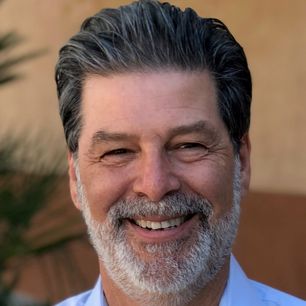
Get to know the Experts

Christophe Basso joined Future Electronics in July 2021 and works as a business development manager (BDM) providing expertise in ac-dc and dc-dc converters for customers located in EMEA. He previously was a Technical Fellow with onsemi in Toulouse where he led an application team dedicated to developing new offline PWM controller specifications. He has originated numerous integrated circuits among which the NCP120X series has set new standards for low standby power converters.
Christophe has over 25 years of power supply industry experience. He holds 25 patents on power conversion and often publishes papers in conferences and on-line magazines like How2Power. He has written several books on power electronics which have been translated in various languages. He has recently released a new title Transfer Functions of Switching Converters: Fast Analytical Techniques at Work with Small-Signal Analysis published with Faraday Press.
Prior to joining ON Semiconductor in 1999, Christophe was an application engineer at Motorola Semiconductor in Toulouse. Before 1997, he worked as a power supply designer in the European Synchrotron Radiation Facility in Grenoble, France, for 10 years. He holds a Diplôme Universitaire de Technology from the Montpellier University (France, 1985) and a MSEE from the Institut National Polytechnique of Toulouse (France, 2007). He is an IEEE Senior Member.

Arturo Mediano is the founder of The HF-Magic Lab®, a specialized laboratory for design, diagnostic, troubleshooting, and training in the EMI/EMC, Signal Integrity, and RF fields at I3A (University of Zaragoza).
He received his M.Sc. (1990) and his Ph. D. (1997) in Electrical Engineering from the University of Zaragoza (Spain), where he has held a teaching professorship in EMI/EMC/RF/SI since 1992.
For more than 30 years Arturo has been involved in R&D projects with many companies in the EMI/EMC, Signal Integrity and RF fields for communications, industry, medical, and scientific applications. He regularly shares his knowledge and expertise with students and engineers in teaching courses and seminars.
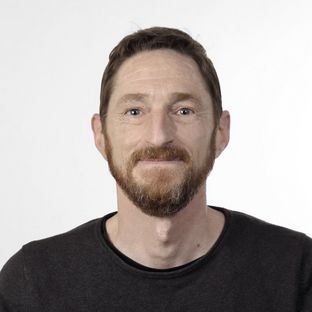
Andreas Reiter studied Micro and Nanotechnology and graduated with a Physics degree from the Munich University of Applied Sciences. His professional career brought him from nano mechanics to solid-state physics, thermo dynamics and finally to power conversion. Since 2005, Andreas is focusing on intelligent power conversion applications. Since more than 11 years, he is working with Microchip where is is leading the power conversion applications group, acting as a bridge between semiconductor development and end-customers applications.
His specialties are digital power supplies, switching power supplies and embedded control design and programming.
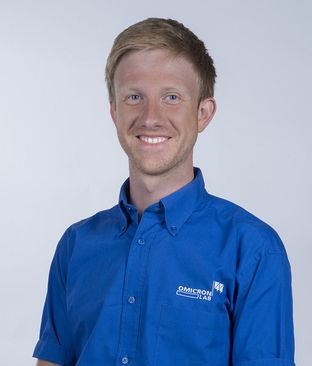
Florian Hämmerle went to the Bregenz Electrical Engineering College (HTL). After that, he studied Mechatronics at the University of Applied Sciences Vorarlberg (FHV), where he carried out his Master thesis "Simulation and Characterization of a Miniaturized Planar Coil" at the Research Center for Microtechnology.
Since 2010, Florian is working at OMICRON Lab with a strong focus on power electronics applications for the Bode 100 VNA.
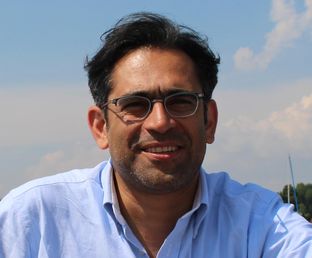
Dr. Ali Shirsavar founded Biricha Digital Power over a decade ago. Prior to that he was a senior academic a leading UK university specialising in Power Electronics. He is well known throughout our industry for his excellent training workshops on power supply design and EMC.
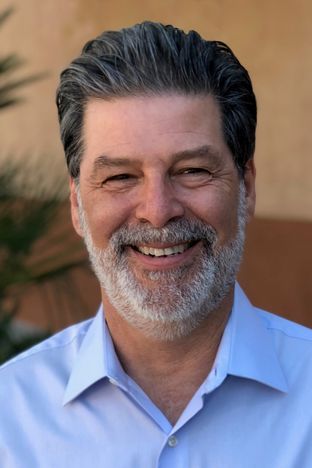
Steve Sandler has been involved with power system engineering for nearly 40 years. Steve is the founder of Picotest.com, a company specializing in instruments and accessories for high performance power system and distributed system testing. He frequently lectures and leads workshops internationally on the topics of Power Integrity, PDN, and Distributed Systems and is a Keysight Certified EDA expert. Steve publishes articles and books related to power supply and PDN performance. His latest book, “Power Integrity: Measuring, Optimizing and Troubleshooting Power-Related Parameters in Electronics Systems” was published by McGraw-Hill in 2014. He is the recipient of the ACE 2015 Jim Williams Contributor of the Year ACE Award for his outstanding and continuing contributions to the engineering industry and knowledge sharing. Steve is also the founder of AEi Systems, a well-established leader in worst case circuit analysis, modeling, and troubleshooting of satellite and other high reliability systems.
